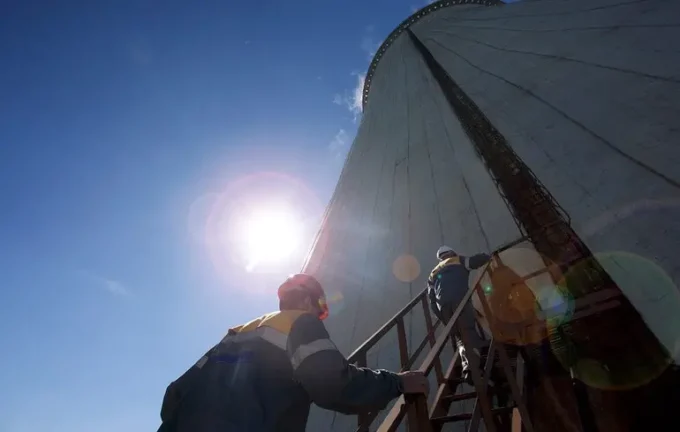Unprecedented Heatwave Forces Europe to Halter Nuclear Power Plants Due to Water Overheating Risks

The late summer heatwave, which has become unusually intensive and prolonged, is causing significant disruptions in Europe's energy sector. In France and Switzerland, several nuclear power plants have been compelled to suspend or limit their operations due to adverse cooling conditions. The main issue stems from the sharp increase in temperature of natural water bodies used for cooling reactor systems. Typically, nuclear stations draw water from rivers or seas, utilizing it to cool equipment, then releasing it back into the environment at a higher temperature. However, the record-breaking heatwave has raised water temperatures to levels that make their use for cooling unsafe—for equipment integrity and ecological balance alike. Consequently, several facilities have had to reduce capacity or cease operations altogether. In Switzerland, the company Axpo announced that on Tuesday, one of the reactors at the Beznau Nuclear Power Plant was shut down, while the second operated with limited capacity. Both reactors had been gradually decreasing output over the past days due to rising river temperatures, which in recent days reached 25°C. To prevent further thermal stress and protect aquatic ecosystems, operators reduced capacity to 50%. Switzerland plans to phase out nuclear energy by 2033, but existing stations will continue functioning as long as they remain safe. Meanwhile, in France, EDF has halted operations at the Golfech Nuclear Power Plant in the Tarn-et-Garonne department amid warnings about extreme heat and fears that the river temperature might reach 28°C, even without warm water being discharged back into the river. France operates 18 nuclear power stations with 57 reactors, generating over 65% of the country’s electricity from nuclear energy, which the government promotes as an environmentally friendly source. Experts warn that climate change will make peak load stresses during heatwaves more frequent, complicating energy management across Europe. Regarding Ukraine, there is an increasing risk of power outages during the summer months, as warned by Oleksiy Popkenko, head of the Union of Utility Consumers. He emphasized that rising temperatures and the ongoing shortage of natural gas—already a longstanding challenge—could lead to electricity disruptions during the hottest periods.

